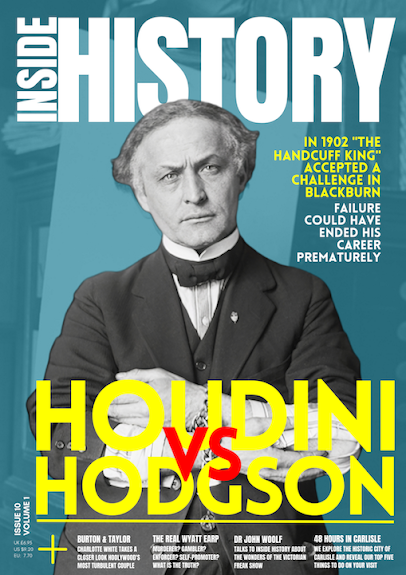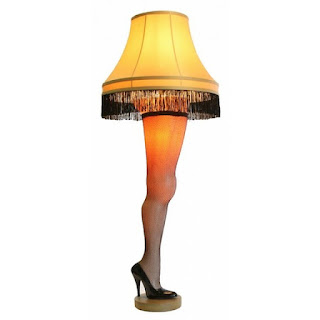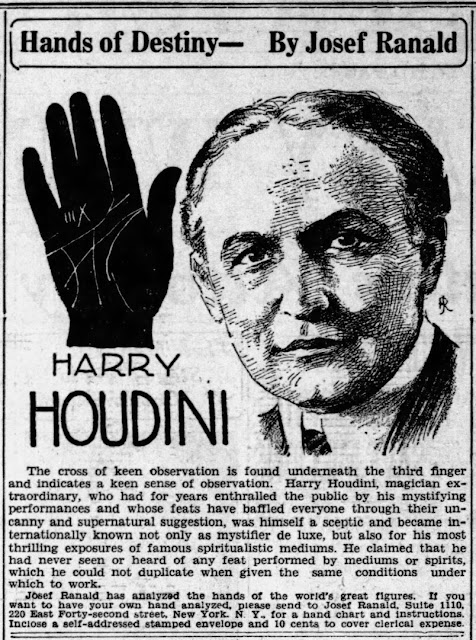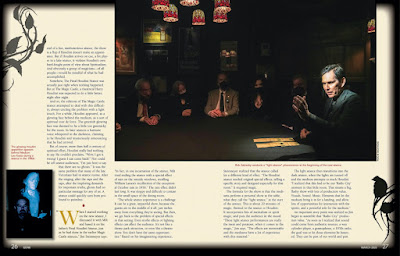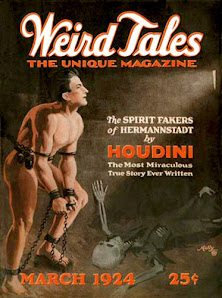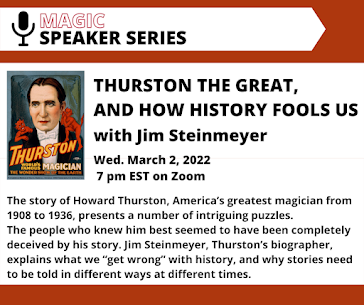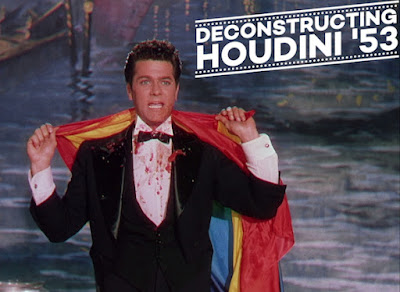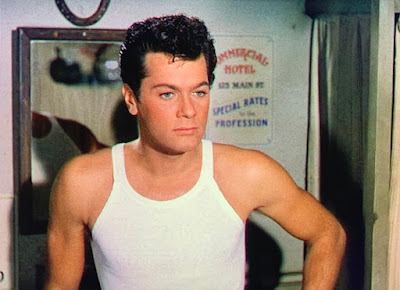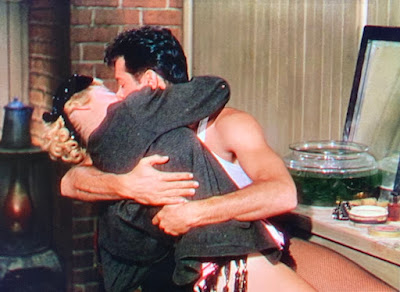Continuing my scene by scene dissection of Paramount's classic 1953 biopic Houdini.
Last time we joined Harry and Bess on their Wedding Night. Today we hit the road...
Chapter 6: Miner's Hall
The Houdinis years of toil at the bottom rungs of show business is nicely dramatized in this sequence set at the fictional Miner's Hall in Monona Jct., West Virginia. The real Harry and Bess did perform in West Virginia in their early years. In Paw Paw Houdini recorded in his diary: "Rain hard. No dinner." While the events of these scene are wholly fictional, it does a good job of showing how a rough and tumble start helped shape Houdini's stage persona. By the way, this entire sequence was one of two that would be cut from the film when it aired on television. It wasn't until the advent of VHS that I ever saw it.
We open on the uncredited
Billy Bletcher performing as "Luratti, The Little Man with the Big Voice". (That is his real baritone.) This is a world of show business that you don't really see in other biopics, but it is very representative of the world that Houdini performed in. He was almost always part of a rotation of acts on a variety bill. Here the act is billed as "The Great Houdinis", but the real Harry and Bess called themselves just "The Houdinis". As I've previously mentioned, Houdini rarely used "Great" in his billing. It sounded as corny then as it does now. But Hollywood finds it irresistible.

After Luratti is driven off the stage by the vegetable throwing audience, The (Great) Houdinis reluctantly take the stage and launch into their magic act. The trick we see Houdini perform is the Whirlwind of Colors, an effect performed by the real Houdini
and later Bess. But instead of producing a flapping American "Eagle" from the scarves, here he conjures a teetering stack of goldfish bowls. This just invites an especially rowdy audience member (
Joe Ploski) to shoot Bess with a spit-wad, causing her to drop all the bowls. It's a mess and poor Janet Leigh looks to be having a genuinely difficult time getting off the slippery stage.
Houdini's plea, "At least give us a chance," is met with a tomato to his face. He then steels himself and announces he will do a trick "never before seen on any stage." He then vanishes before the stunned crowd and reappears within the audience where he delivers his own tomato to the face of his tormentor. This wins over the audience who cheer him heartily.
The vanishing effect as performed here is worth talking about. This is not a trick that can be performed impromptu in any space. This is a big theater effect. Tony Curtis plays it as if he is digging into some deeper reservoir of magic power brought on by his anger. Suddenly he IS the greatest magician of all time, the future HOUDINI, and he does the impossible. Tellingly, Bess, who will later express her fear of this power, is not there to witness it. Or is this just another magic trick? We never find out, and playing with this ambiguity is part of the fun of Houdini.
Harry then joins Bess in their (unrealistically large) dressing room. She expresses her frustration with life on the road. When their next stop, Wheeling, is mentioned, Bess laments, "We'll probably get shot there." This may or may not be a nod to Harry getting shot in the hand in Coffeeville, Kansas, during this time. Bess suggests Harry consider taking a job in a lock factory. This is not something Harry takes well. We then get this exchange:
Bess: Nobody seems to want your magic, Harry. There's nothing new in card tricks. What does it mean to go through trap doors and escape from cabinets. What does it all mean?
Harry: I don't know what it means. I only know what it does to me. Like tonight when I did that disappearing act, tough as they were, you should have seen their faces. I gave them a thrill. Something to take home and talk about.
Bess: So you thrilled them for a minute. By tomorrow it will be forgotten.
Harry: Next time I'll give them a bigger thrill. Something they won't forget so soon.
This is nice foreshadowing, and I love the moment in any biopic when Houdini expresses what it means to be a magician. We also get a bit of Harry's backstory here when he says, "I never went to school. I started working when I was nine years old with the magician in a tent show." Neither is true, but it's an effective bit of expository dialogue that sets up his rags to riches story.
Bess seems resigned to this life and asks Harry to help her out of her costume so they can catch the milk train to Wheeling. But instead Harry pulls her into his arms and gives her a deep kiss.
Tony Curtis and Janet Leigh were married at this time, and their real-life romance was a big selling point of
Houdini. "Their real love spills over on the screen!" ran one of the trade ads promoting the star coupling. This moment, which is fairly sexy by 1950s standards, appears to be delivering on that promise. And we know
Houdini was an effective
date movie.
As their kissing grows more passionate, we hear the sound of the train in the distance, suggesting they are not going to make their connection. Does this mean Harry has acquiesced? The next scene will tell us...
